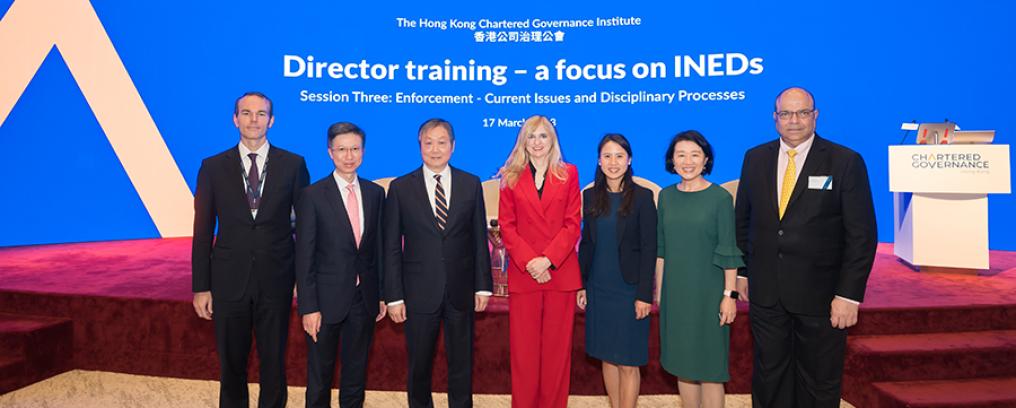Dr Agnes KY Tai, Chief EC.ESG Investment Strategist, BlueOnion, highlights how carbon offsets can assist companies in their transition towards low-carbon operations, products and services.
Climate change is one of the most pressing issues facing the world today. The effects of rising temperatures, extreme weather events and sea level rise are already being felt around the globe. In response, governments, businesses and individuals are taking action to reduce their carbon footprint and mitigate the effects of climate change.
Hong Kong is well-positioned as the Greater Bay Area (GBA) green finance hub. President Xi Jinping’s July 2022 speech, which referred to Hong Kong as a ‘springboard’, further emphasises the city’s importance as a super connector, not only in capital markets activities but also in the global fight against climate change. The Hong Kong Climate Action 2050 plan and the Mainland’s commitment to peak greenhouse gas (GHG) emissions by 2030 and achieve carbon neutrality by 2060 are significant steps towards achieving a sustainable future.
How can voluntary carbon markets help?
There are many well-known measures businesses can take in their transition towards low-carbon operations, products and services. These include: investing in renewable energy, improving energy efficiency, reducing embodied carbon in materials, use of low carbon transportation, and collaborating with suppliers and customers in emissions reduction. Businesses can also contribute to carbon neutrality efforts, however, through participation in voluntary carbon markets (VCMs). In particular, they can utilise carbon credits where carbon removal technology is not available at scale yet. VCMs are distinct from compliance carbon markets in that they are not legally mandated but are instead driven by voluntary commitments to reduce emissions. The role of VCMs is to provide a platform for businesses to offset their hard-to-abate residual emissions by purchasing carbon credits from projects that reduce or remove GHG emissions. These credits are generated by projects such as (re)forestation, renewable energy and energy efficiency. Each carbon credit is equivalent to offsetting one tonne of GHG emissions.
The HKSAR Financial Services Development Council recently published a research report titled – Road to Carbon Neutrality: Hong Kong’s Role in Capturing the Rise of Carbon Market Opportunities. The report predicts that global VCMs will grow to a value of US$17.1 billion by 2027. As a leading international financial centre with deep experience in capital markets, strong connections with international investors and proximity to the Mainland, Hong Kong is in a prime position to operate a dynamic VCM that caters to the global business and investment demands.
Key considerations for companies in Hong Kong
In October 2022, Hong Kong Exchanges and Clearing Ltd (HKEX) launched its own VCM – Core Climate. By November, 40 trades were completed by 20 participants, representing around 400,000 carbon credits (offsetting around 400,000 tonnes of GHG emissions). This trusted platform enables the registration, transaction and settlement of quality carbon credits in Hong Kong dollars and RMB on a Delivery-versus-Payment basis. The transacted credits are retired to avoid double-counting.
Carbon credit issuers in VCMs are project-based. The nature and vintage of these projects – vintage here refers to the year that the associated carbon credits were issued or the year in which the GHG emission reductions occurred – together with the jurisdictions involved and the verification standards and methodologies used, can vary significantly. This diversity allows businesses to choose projects that align with their values and goals. Businesses can benefit from VCMs by offsetting their hard-to-abate residual emissions, which are emissions that cannot be eliminated through internal measures. The Science-Based Targets initiative (SBTi) does not allow carbon offsets to count towards GHG emissions reduction targets except for hard-to-abate residual emissions, but they can still contribute to reducing a business’s carbon footprint.
It is important to note that carbon credits are not a commodity due to the different nature of projects and vintages. The quality of carbon credits is essential and attributes, such as additionality, permanence and MVR (monitoring, verification and reporting) can affect their value. To date, the most used standards are those of the Verified Carbon Standard Program operated by VERRA, and the Gold Standard – a voluntary carbon offset programme focused on progressing the United Nation’s Sustainable Development Goals.
Some of the considerations in the corporate use of carbon credits include:
- the need to understand the VCM and the nature of the credits on offer
- the availability of the desired vintage
- the available budget
- the risk of being seen as not having done enough to reduce your carbon footprint, and
- the fact that SBTi does not allow carbon offsets to count towards GHG emissions reduction targets.
Building liquidity
The exchange-traded carbon credits’ price discovery requires volume and liquidity, which can be challenging to achieve in VCMs. Supported by the evidence of a successful ‘Stock Connect’ regime, Core Climate and China Beijing Green Exchange can potentially form a ‘Carbon Connect’ to increase liquidity and facilitate price discovery. As the carbon market becomes more mature, carbon-themed indices and derivatives could also be developed, which would further enhance trading volume.
Going forward, a unified GBA carbon market could provide an opportunity for businesses to participate in a more extensive and more liquid market. The integration of the GBA’s carbon market with Shanghai’s national Emissions Trading System could also provide opportunities for businesses to participate in a more extensive and more liquid market. The GBA’s carbon market could facilitate the flow of capital and technology across the region.
Businesses with projects that remove GHG emissions could potentially generate revenue by selling verified carbon credits on an exchange such as Core Climate. This would provide an opportunity for companies to not only reduce their carbon footprint but also contribute to the growth of the VCM.
The fight against climate change requires collective action, and businesses can play a significant role in decarbonising our economy and in achieving a sustainable future.
Dr Agnes K Y Tai, Chief EC.ESG Investment Strategist
BlueOnion
In addition to her work with BlueOnion, an intelligent sustainability platform that empowers responsible investing, the author is Director of her family office Great Glory Investment Corporation; Governing Board member of the Climate Governance Initiative and Founding Steering Committee member of its Hong Kong Chapter; Advisory Board member of Asia Climate Forum; Council member of the Hong Kong Institute of Directors; and an expert review panel member of MTR’s sustainability reports. Agnes holds multiple globally recognised certificates in climate, sustainability and ESG investing, trains board directors in sustainability across five continents and has held senior roles in asset/risk/investment management in various jurisdictions over the past 43 years. She has a PhD from the Hong Kong University of Science and Technology and an MBA from the University of Chicago, Booth School of Business. She is an author and a frequent speaker.



